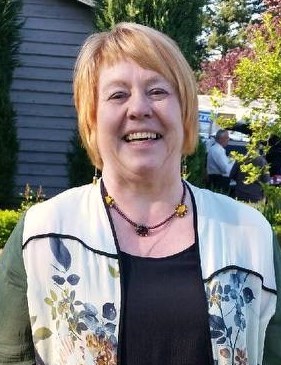 “A poem begins with a lump in the throat; a homesickness or a love sickness. It is a reaching-out toward expression.” - Robert Frost
“A poem begins with a lump in the throat; a homesickness or a love sickness. It is a reaching-out toward expression.” - Robert Frost
For those of us who cannot claim to be poets or artists, it is important to remember, creativity, no matter the form, is an important facet of who we are.
When something deep is evoked in us, it can be like “a lump in the throat”. More importantly, as Frost recognised, we must pay attention. Creative awakening is akin to a “homesickness, a love sickness”, or an intense yearning.
I experienced such an awakening this past August. It was at a gathering of fellow Deacons, faith leaders from different denominations, Indigenous elders, and wise “poets” from South America, Central America, Australia, North America and the Caribbean. The theme ‘Respecting Covenant - Risking the Journey of Reconciliation’ drew us together.
We heard stories of creative responses to the challenge of reconciliation. Humility accompanied generosity, pain was woven into beauty, and compassion found its partner in truth telling. The creative expressions of these included poetry, art, music, dance, home design, intentional, inclusive, nurturing communities, and creation framed worship without walls.
Our conversations were not always easy. They had the intense beauty of that which grows out of a lump in the throat. We heard of the global effects of colonial beliefs and policies in the treatment of first peoples. To my sadness, I learned more of the ways our own Indian Act was the model for government policies concerning first peoples in other countries.
The symptoms of human greed were starkly portrayed through art, photos and shared narratives. The implications for local and global communities due to the methods used in the extraction of natural resources were deeply worrying given the growing loss of agricultural land, clean water and air quality, The diminishment of the value of a human being was seen in the plight of refugees and the fact of “slave” markets devoted to human trafficking.
However, the worship, music, prayer and reflections which interspersed presentations and discussions, reminded us of similar stories in scripture. Times when people chose to ignore the grace of God and were guided by greed, and power. For them “trouble makers”, adversaries and the weak, were disposable. Yet hopelessness would be transformed by unexpected creative action.
As we learned of “wild church” and watershed discipleship, of green architecture, work in Australia, Brazil and Argentina supporting cultural practice and enabling the teaching and use of indigenous languages, and similar work in Canada, we also experienced the awareness building wisdom of the faceless dolls project, and the beauty of the Butterfly in Spirit activist dancers.
Was this part of the journey of reconciliation? Yes, and it was enriched further through the wisdom of ordinary people of faith. There was the deacon from Texas fighting for justice for the families who languish in detention centres, the Australian seminarian, living in intentional community where the commitment is to invite and welcome homeless families to live with them, and the Brazilian Deaconness supporting and enabling the preservation of indigenous language and culture.
Although we confronted difficult realities during our time together it was strangely freeing. I realized what we had heard from presenters, and our colleagues were stories of unlikely people, who through a “lump in the throat” set about changing the status quo. Freed from reacting to injustice they have no qualms about creatively seeking the impossible.
 The Reverend Canon Nancy Ford, Deacon, is the Anglican Director of Deacons for the Diocese of British Columbia and Deacon to the City of Victoria out of Christ Church Cathedral.
The Reverend Canon Nancy Ford, Deacon, is the Anglican Director of Deacons for the Diocese of British Columbia and Deacon to the City of Victoria out of Christ Church Cathedral.
You can read more articles on our interfaith blog, Spiritually Speaking,
* This article was published in the print edition of the Times 91ԭ�� on Saturday, Sept 21st 2019
Photo of people talking by ���Dz���


